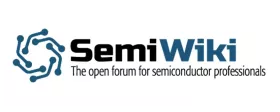2024 Outlook with Stephen Fairbanks of Certus Semiconductor
Certus Semiconductor is a unique company. Their customer centric business model ensures customer success at many levels. Certus is staffed by a team of IO and ESD experts that go above and beyond what you can get from free libraries, protecting your designs and your customers products from the risks of electrostatic discharge.
Tell us a little bit about yourself and your company.
My name is Stephen Fairbanks; I am classically trained as a semiconductor analog and RF circuit designer, specializing in designing and developing process-specific I/O and ESD libraries for over 25 years. I led the development of the ESD and I/O libraries for Intel’s wireless, cellular, and mobile computing groups for many years in the early 2000’s. I have been an ESD and I/O consultant since leaving Intel in 2006 as part of SRF Technologies. In 2009, I established Certus Semiconductor in partnership with Freescale’s I/O and ESD teams and Markus Mergens of QPX. When NXP acquired Freescale, the partnership dissolved, but I maintained the rights to the Certus Semiconductor brand and continued building the business, which has been quite a journey. Certus Semiconductor has expanded its IP offerings to include I/O libraries and ESD solutions in many foundries from 180nm to 11nm, with current research and development into more advanced nodes.
What was the most exciting high point of 2023 for your company?
To read the full article, click here
Related Blogs
- Catching up with Stephen Fairbanks (Certus Semiconductor)
- Dr. Wally Rhines on global semiconductor industry outlook 2013
- 2024 Outlook with Chris Morrison of Agile Analog
- 2024 Outlook with Laura Long of Axiomise
Latest Blogs
- One Bit Error is Not Like Another: Understanding Failure Mechanisms in NVM
- Introducing CoreCollective for the next era of open collaboration for the Arm software ecosystem
- Integrating eFPGA for Hybrid Signal Processing Architectures
- eUSB2V2: Trends and Innovations Shaping the Future of Embedded Connectivity
- Securing UALink: Introducing Synopsys UALinkSec_200 Security Module
